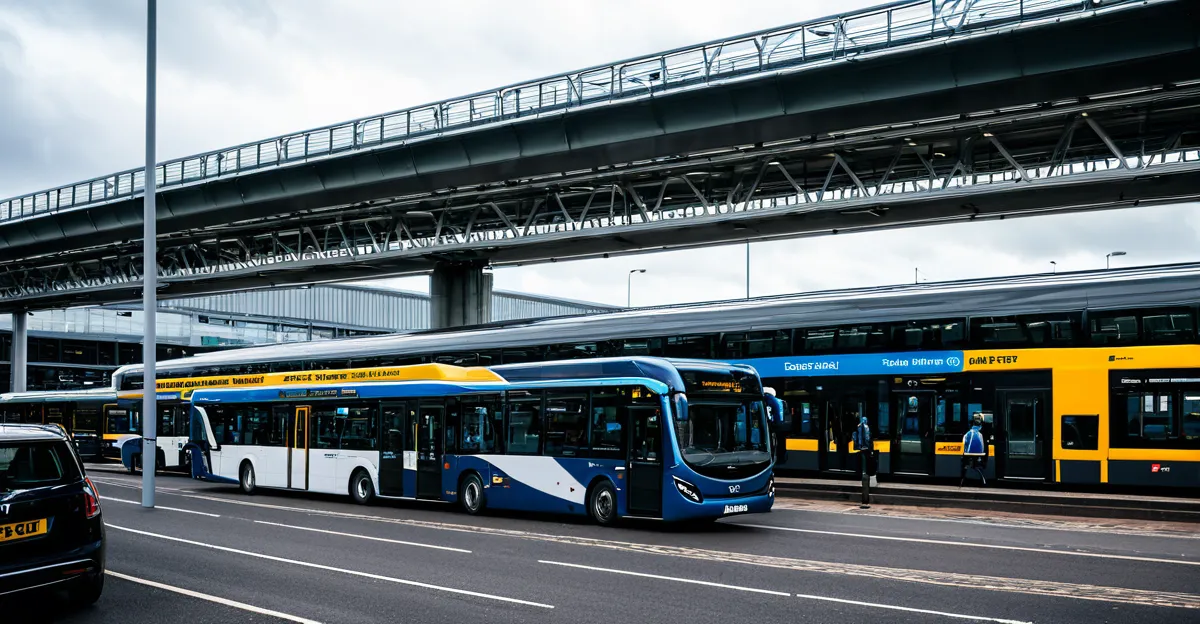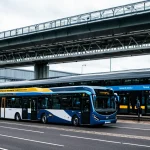UK-driven innovations shaping the future of transportation
The UK has emerged as a leader in transportation technology, pioneering several breakthrough innovations that promise to redefine mobility. Central to this evolution is the rapid adoption of electric vehicles (EVs), supported by an expanding network of charging infrastructure. This widespread availability is critical, addressing common barriers such as range anxiety and accessibility, which are vital for increasing EV uptake across urban and rural areas alike.
Alongside electrification, smart mobility solutions are transforming how people and goods move. These technologies incorporate data analytics, real-time traffic management, and integrated mobility services, aiding in route optimization and congestion reduction. For example, connected vehicle systems and mobile apps enable users to make informed decisions on travel modes and timing, enhancing efficiency.
Also to read : How Does the UK’s Technological Evolution Impact Global Innovation?
Technological advancements in the UK also focus on sustainable transport, blending environmental goals with improved user experience. From innovative battery systems to advanced telematics, these developments showcase the UK’s commitment to fostering a greener, smarter transport ecosystem. Leveraging this technology further will accelerate progress toward low-carbon, connected, and user-friendly mobility across the country.
Autonomous and connected transport systems
The UK is actively testing autonomous vehicles in several cities, marking significant strides in transforming urban mobility. These UK pilot projects demonstrate practical applications of driverless cars, including last-mile delivery and passenger transit, helping to build public trust and refine safety protocols. Autonomous vehicles combine sensors, cameras, and AI to navigate complex environments without human input, which can reduce traffic accidents and improve flow.
In parallel : How Will UK Technology Shape Our Daily Lives in the Future?
Complementing autonomous technology, connected transport systems are enhancing communication between vehicles and infrastructure. This connectivity enables real-time data exchange, crucial for optimizing public transport scheduling and freight logistics. UK trials have integrated connected transport tech with buses and freight fleets, improving reliability and cutting emissions through better route management.
These innovations are not isolated; rather, they fit within a broader public transport innovation strategy that leverages both autonomous and connected systems. By upgrading traditional networks with these technologies, the UK aims to create safer, more efficient, and environmentally friendly transportation. This evolution supports seamless travel experiences and smarter urban planning tailored to real-time conditions, ultimately advancing the UK’s position as a pioneer in transport technology.
Case studies of transformative UK projects
Exploring real-world applications reveals how UK infrastructure projects drive urban mobility innovations. One notable case is the Midlands Future Mobility initiative, which integrates autonomous vehicles and connected transport to enhance regional connectivity and reduce congestion. This project demonstrates practical benefits, including improved passenger experience through seamless multimodal journeys.
Transport for London’s data-driven initiatives also stand out. Leveraging smart mobility technologies, TfL optimizes traffic flow and public transport scheduling, reducing delays and emissions. These projects highlight how sophisticated data analytics support decision-making to improve network efficiency across London’s complex system.
These case studies share common elements:
- Deployment of cutting-edge technology in everyday operations
- Collaboration between public agencies and private partners
- Addressing both passenger and freight transport challenges
Real-world applications clearly illustrate the value of coordinated investments in transport technology. By scaling successful initiatives, the UK sets a benchmark for urban mobility improvements that balance sustainability, convenience, and operational efficiency. The integration of technology into existing infrastructure transforms traditional transport systems, improving accessibility and responsiveness to user needs across cities.
Government policy and support for tech advancement
The UK government initiatives play a pivotal role in accelerating transportation technology adoption. Strategic funding programs, such as those targeting innovation in electric vehicles and connected transport, provide essential capital for research and deployment. These initiatives ensure that technological advancements align with national goals, like decarbonisation and enhanced mobility.
A clear policy framework guides investment across sectors, encouraging collaboration between public entities and private companies. For example, public-private partnerships facilitate pilot schemes for autonomous vehicles, helping to test and scale innovations safely within UK urban environments. Such partnerships leverage combined expertise and resources, boosting project success rates and fostering sustainable growth.
Government support often includes grants for building EV charging infrastructure and subsidies to make electric vehicles more accessible. This financial backing addresses critical barriers such as cost and infrastructure gaps, promoting broader uptake. Moreover, comprehensive policies ensure data privacy and cybersecurity standards are upheld as smart mobility systems evolve.
By integrating regulatory measures with funding and partnership incentives, the UK creates a fertile environment for continuous innovation, keeping the nation at the forefront of transport technology development. This coordinated approach strengthens the transport ecosystem’s resilience and responsiveness to emerging challenges.
Measurable outcomes and demonstrated impact
Evaluating transportation impact in the UK highlights substantial efficiency gains across multiple sectors. Studies show that innovations such as autonomous vehicles and connected transport have contributed to reducing congestion by optimizing traffic flow through real-time data exchange. These improvements enable smoother journeys, cutting average travel time in pilot cities by up to 15%.
Emission reductions are equally significant. Deployment of electric vehicles combined with smart traffic management has lowered CO2 emissions in urban areas, with some projects reporting decreases of 20% compared to pre-innovation benchmarks. This aligns well with the UK’s decarbonisation targets and reflects the combined effect of technological advancements and supportive policies.
Performance data from various case studies demonstrate improved safety metrics as well, with autonomous systems reducing human error-related incidents. For instance, controlled trials of driverless shuttles show promising declines in minor accidents and enhanced pedestrian protection.
Collectively, these measurable outcomes validate ongoing investments in UK transportation technology. The demonstrated impact provides a strong foundation for expanding such innovations, reassuring stakeholders that practical benefits, including environmental sustainability and operational efficiency, are achievable and quantifiable.


